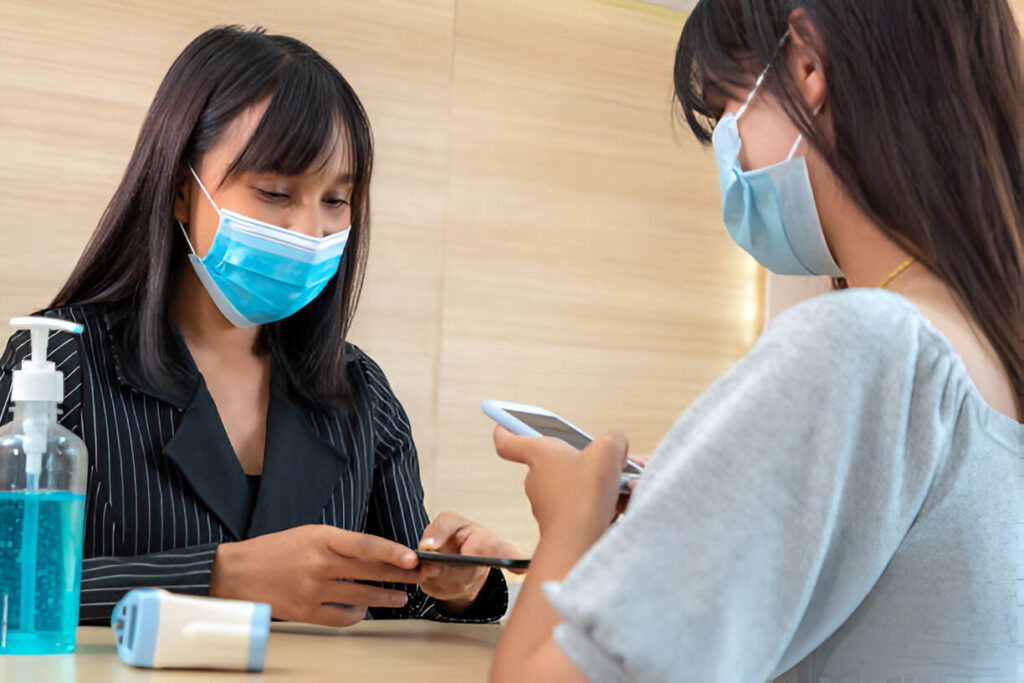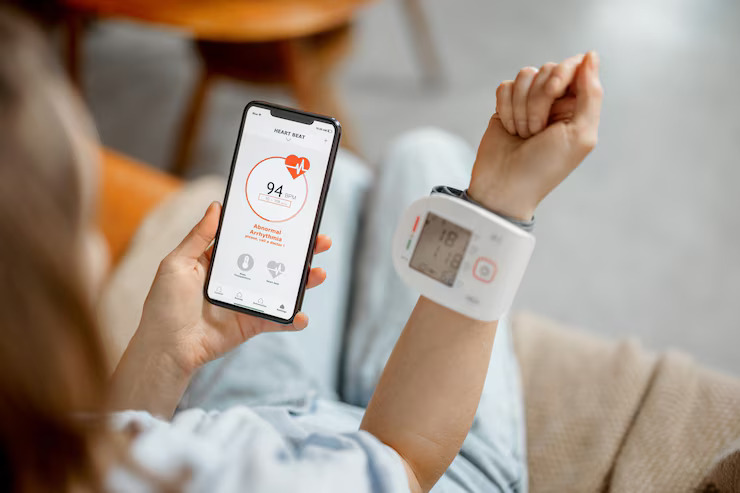
Patient-designed concierge services in clinical trials are changing the way participants connect with research studies. These services offer personalized support tailored to meet the specific needs of each patient, aiming to alleviate common stressors associated with trial participation.
Key takeaway: Patient concierge services enhance trial participation and satisfaction by addressing non-medical concerns, managing travel logistics, and clarifying protocols. This ensures a smoother experience for trial participants.
The rise of decentralized clinical trials is also improving patient engagement by providing more flexibility and convenience in trial participation. The shift towards virtual and hybrid trials, accelerated by the COVID-19 pandemic, is making clinical research more accessible than ever before.
In addition to improving logistical aspects, these concierge services are also crucial in collecting real-world data through wearable devices. These devices allow clinical study teams to monitor patients’ health metrics such as daily steps, sleep quality, and heart rate, leading to increased patient compliance and retention.
Understanding Patient Concierge Services
Patient concierge services, such as those offered by Delve Health, play a crucial role in clinical trials by providing personalized assistance designed to meet the specific needs of each participant. These services ensure that patients receive comprehensive support throughout their trial journey, significantly improving their experience and involvement.
Definition and Purpose
At its core, a patient concierge service is a support system that focuses on the non-medical aspects of clinical trial participation. The purpose of these services is multifold:
- Ease Patient Burden: By managing logistics such as travel and accommodation.
- Enhance Communication: Provide clear information about trial protocols.
- Boost Retention Rates: Keeping participants engaged and satisfied.
Role of Personalized Support
Personalized support is essential in clinical trials as it directly impacts patient participation. Key aspects include:
- One-on-One Assistance: Offering tailored help for individual concerns and questions.
- Emotional Support: Addressing anxiety and stress related to trial participation.
- Information Clarity: Ensuring patients fully understand what is expected of them during the trial.
Providing this kind of individualized care helps maintain high levels of engagement and reduces dropout rates.
Key Features of Effective Concierge Programs
Effective patient concierge programs, like those provided by Delve Health, typically share several key features:
- 24/7 Availability: Around-the-clock support to address any immediate concerns or logistical issues.
- Multi-channel Support: Utilizing email, chat, and phone to offer flexible communication options.
- Travel Coordination: Managing transportation logistics to reduce barriers related to geographical distance.
- Feedback Utilization: Continuously improving services based on patient feedback.
These elements collectively work to streamline the patient experience, making clinical trials more accessible and less daunting for participants.
Understanding these aspects highlights the transformative potential of patient concierge services in clinical trials. For instance, with patient e-consent services, obtaining consent becomes a seamless process. This sets the stage for deeper exploration into specific types of concierge services and their benefits.
For more insights on this topic, you can explore our blog which provides a wealth of information regarding various aspects of healthcare including privacy settings which can be crucial in maintaining confidentiality during clinical trials as discussed in our privacy settings page.
Types of Patient Concierge Services
Patient concierge services in clinical trials include various support mechanisms aimed at improving the participant experience. Here are some key types of these services:
One-on-one assistance for Non-Medical Questions
Participants often have many non-medical questions during the trial process. Concierge services offer personalized, one-on-one help to answer these questions, reducing anxiety and ensuring understanding. This tailored support can involve explaining appointment schedules, and trial procedures, or even providing emotional support.
Travel Coordination and Reimbursement Solutions
Travel logistics can be a major obstacle to trial participation. Concierge services like Elligo Health Research provide customized travel coordination, including booking transportation and accommodations. They also offer reimbursement solutions to cover travel costs, making sure that distance is not a barrier. For example, 91% of surveyed patients say travel distance is important for their participation.

Support for Understanding Protocol Requirements
Clinical trials have complex protocol requirements that can be overwhelming for participants. Concierge services simplify this by offering clear guidance on what is needed at each stage of the trial. This includes helping with the necessary paperwork, scheduling lab visits, and ensuring participants meet all compliance standards.
These services work together to lighten the load on participants and improve their overall experience in clinical trials. Additionally, the integration of digital healthcare solutions, such as those offered in partnership between Delve Health and Cerascreen, further streamlines the process by providing comprehensive support through user-friendly apps.
The Importance of Patient Feedback in Concierge Programs
Patient feedback plays a critical role in shaping effective concierge programs for clinical trials. By gathering and utilizing insights from participants, these services can be refined to better meet patient needs and expectations.
Gathering and Utilizing Patient Feedback
- Surveys and Questionnaires: Regularly collecting feedback through detailed surveys helps identify areas for improvement.
- Direct Interviews: Engaging in one-on-one conversations with patients provides deeper insights into their experiences.
- Focus Groups: Facilitating group discussions allows for collective feedback on specific aspects of the concierge service.
Impact on Program Development and Implementation
The real value of patient-designed clinical trial concierge service lies in its responsiveness to feedback:
- Service Enhancements: Feedback-driven modifications ensure services are aligned with patient preferences.
- Increased Satisfaction: Tailoring services based on patient input leads to higher satisfaction rates.
- Improved Retention: Addressing concerns promptly helps maintain participant engagement throughout the trial.
Incorporating patient feedback not only improves individual experiences but also enhances the efficiency and effectiveness of clinical trial operations. This is particularly important in the context of closing the gap and raising patient care standards, a challenge that has been prevalent in the medical research field, especially regarding clinical trials.
Logistical Challenges in Clinical Trials and How Concierge Services Address Them
Common Logistical Challenges Faced by Participants in Clinical Trials
Participants often encounter various logistical challenges that can hinder their involvement in clinical trials:
- Transportation Barriers: Many patients find it difficult to travel to trial sites, especially if they live in rural areas or far from major urban centers.
- Accommodation Issues: Overnight stays may be required for multi-day visits, creating additional strain.
- Scheduling Conflicts: Balancing appointments with personal and professional responsibilities can be taxing.
- Financial Constraints: Costs associated with travel and accommodation are not always covered, making participation less feasible.
How Concierge Services Mitigate Transportation and Accommodation Issues
Clinical concierge services play a crucial role in alleviating these logistical challenges:
- Customized Travel Coordination: Services like those provided by Elligo Health Research arrange patient travel and offer reimbursement solutions. This includes booking flights, arranging ground transportation, and covering travel expenses.
- Accommodation Support: The provision of lodging arrangements ensures that patients have a comfortable place to stay, reducing stress and improving compliance.
- 24/7 Assistance: Round-the-clock support helps address any unexpected issues that arise during travel or stay, ensuring a seamless experience.
- Financial Assistance Programs: Some concierge services cover out-of-pocket expenses related to trial participation, making it financially viable for more patients.
These comprehensive support systems significantly reduce the barriers to participation, enabling more patients to join clinical trials without undue hardship. Additionally, advancements such as wearable technology are revolutionizing the way clinical trials are conducted by simplifying data collection and enhancing patient monitoring. However, despite these advancements, there remain significant missing opportunities in capturing patient-reported outcomes which are crucial for evaluating the effectiveness of treatments.
The Role of Technology in Enhancing Concierge Services
Digital health technologies have transformed patient concierge services, making processes smoother and improving the overall experience for clinical trial participants. By incorporating these technologies, various aspects of concierge services are made easier, ensuring that patients receive the support they need in an efficient manner.

Integration of Technology in Facilitating Concierge Services
Modern patient concierge programs use digital tools to provide seamless support. Here are some examples:
- Automated scheduling systems: These allow patients to book appointments and coordinate travel plans with minimal hassle.
- Mobile apps: Providing real-time updates, reminders, and easy access to trial information.
- Electronic Consent (eConsent): Simplifies the consent process, making it more accessible and understandable for participants.
Multi-Channel Support via Email, Chat, and Phone
Effective concierge services use a multi-channel approach to ensure patients can get help whenever they need it. This includes:
- Email Support: Offering detailed responses and documentation for any queries.
- Chat Support: Providing instant assistance for urgent questions or concerns.
- Phone Support: Ensuring personalized interaction and immediate resolution of issues.
By integrating technology into their operations, patient concierge services not only improve efficiency but also enhance patient satisfaction and engagement.
Patient Engagement Strategies Employed by Concierge Services
Patient engagement strategies are crucial in ensuring high retention rates and enhancing the overall experience of participants in clinical trials. Delve Health is at the forefront of innovating these strategies, offering unique solutions that benefit patients, trial sites, and sponsors alike. Here’s how patient-designed concierge services elevate engagement levels:
Personalized Communication
Direct and tailored communication through various channels such as email, phone calls, and chat ensures that patients feel supported and informed at every step of the trial.
Educational Resources
Providing detailed information about the trial protocol, potential side effects, and what to expect helps demystify the process and reduces anxiety.
Regular Check-Ins
Routine follow-ups to address participant concerns and provide updates can significantly improve engagement. These check-ins may include reminders for appointments, medication schedules, or simply checking on the patient’s well-being.
Incentives and Rewards
Offering incentives like gift cards or reimbursements for travel can motivate participants to remain committed to the study. This approach acknowledges their contribution and effort.
Feedback Mechanisms
Actively seeking patient feedback through surveys or direct conversations enables services to adapt and improve, making participants feel valued and heard.
Accessibility Support
Ensuring that all materials are accessible (e.g., translated into multiple languages, and available in large print) makes participation easier for a diverse range of patients.
The value of these patient-designed clinical trial concierge services lies in their ability to create a supportive environment that fosters trust, reduces dropout rates, and ultimately enhances the quality of clinical research.
Impact on Remote Trials and Virtual Interactions Through Concierge Services
Patient concierge services are changing the game for remote trial participation. With these services, patients can take part in clinical trials without having to go to physical locations. Here’s how:
Virtual Site Visits
Patients can have appointments and consultations with healthcare professionals through video calls. This not only saves time but also reduces the stress of traveling.
Home Health Interactions
Concierge services make it possible for healthcare professionals to visit patients at home for necessary procedures like blood draws or drug administration, making patients more comfortable.
Digital Health Technologies
Concierge teams manage tools like eConsent platforms and wearable devices to ensure they fit smoothly into patients’ daily lives. Additionally, digital technology solutions such as Delve Health’s Clinical StudyPal platform are taking us closer to a future where clinical trials are conducted virtually, in a hybrid manner, or decentralized.
24/7 Support
Constant support through various channels (email, chat, phone) guarantees that patients receive quick answers to their questions, making remote participation more practical.
Elligo Health Research and ICON plc are excellent examples of organizations using these methods to assist remote trials. These efforts not only enhance patient involvement but also keep retention rates high by providing convenience and personalized care.
Concierge services are essential in adapting clinical trials to meet contemporary needs, ensuring that distance is no longer an obstacle to participation. This move towards virtual interactions is a significant improvement in patient-centered care within clinical research. In certain cases, organizations like Delve Health have even partnered with state universities to access remote data capture for specific research areas such as diabetes, showcasing the endless possibilities of remote data capture in clinical trials.
Conclusion: Future Directions for Patient-Centered Care Approaches in Clinical Trials
The future of clinical trials lies in embracing patient-centered care. Prioritizing the value of patient-designed clinical trial concierge services, which play a vital role in enhancing patient-reported outcomes, will shape the landscape by:
- Enhancing patient satisfaction and retention
- Reducing logistical barriers through personalized support
- Leveraging technology, such as wearables, for seamless virtual interactions
These strategies ensure that clinical trials remain accessible, efficient, and responsive to patient needs. By fostering a supportive environment, the potential for improved outcomes and sustained participation increases significantly. Moreover, as we explore opportunities in transforming clinical research in the US, it is clear that embracing these patient-centered approaches will be key to overcoming existing challenges and paving the way for a more effective clinical trial process.













